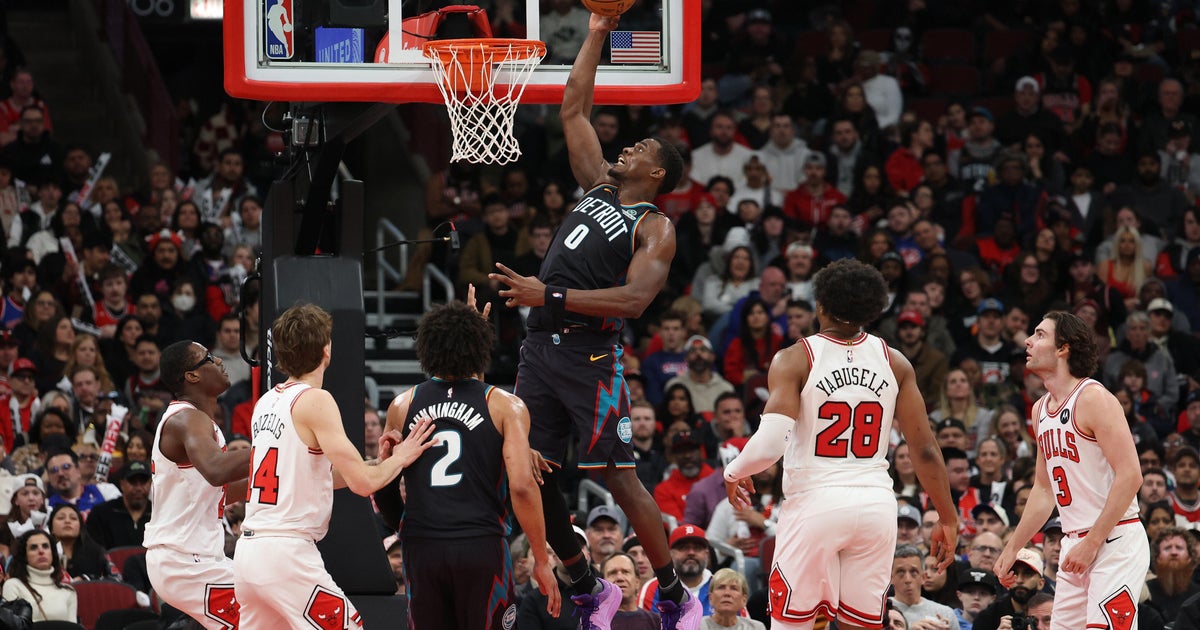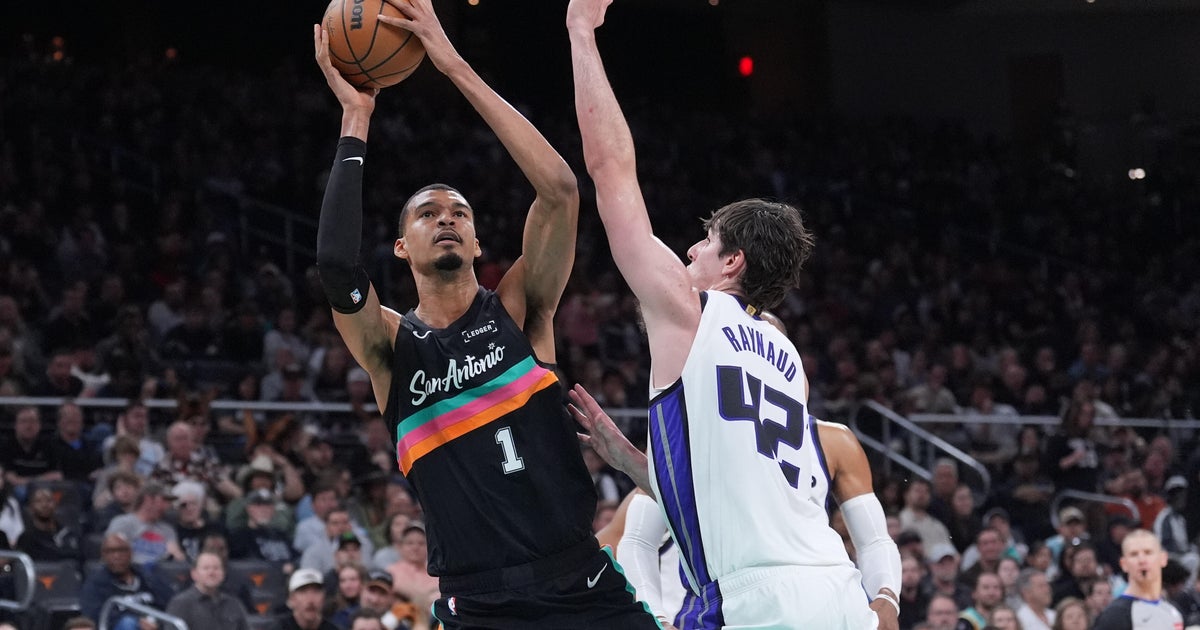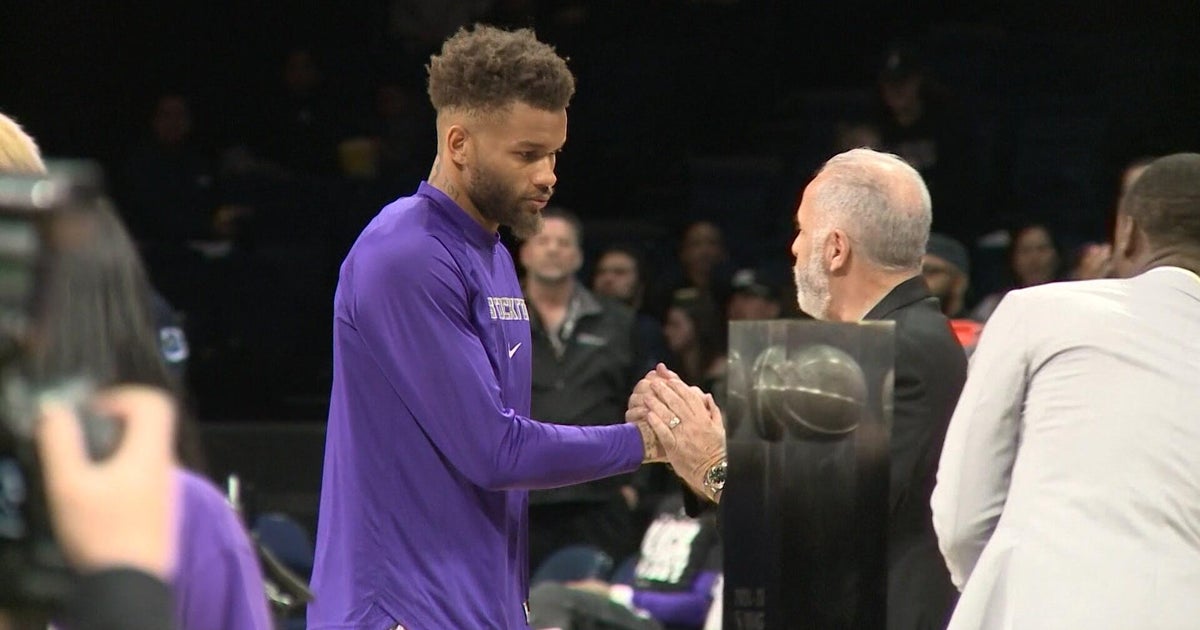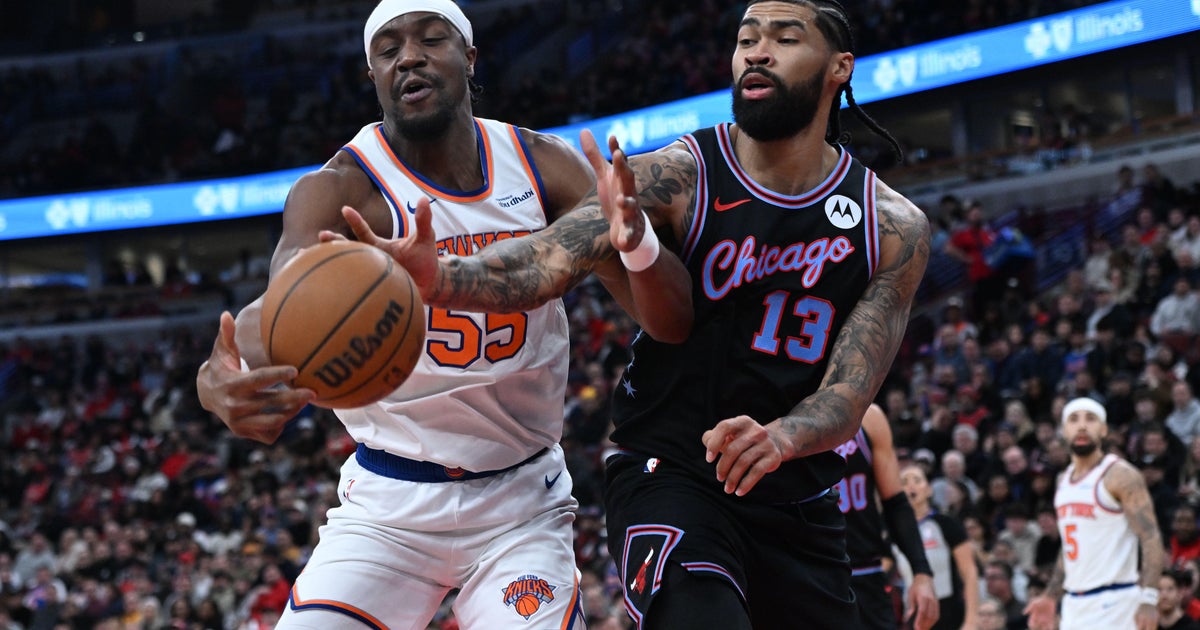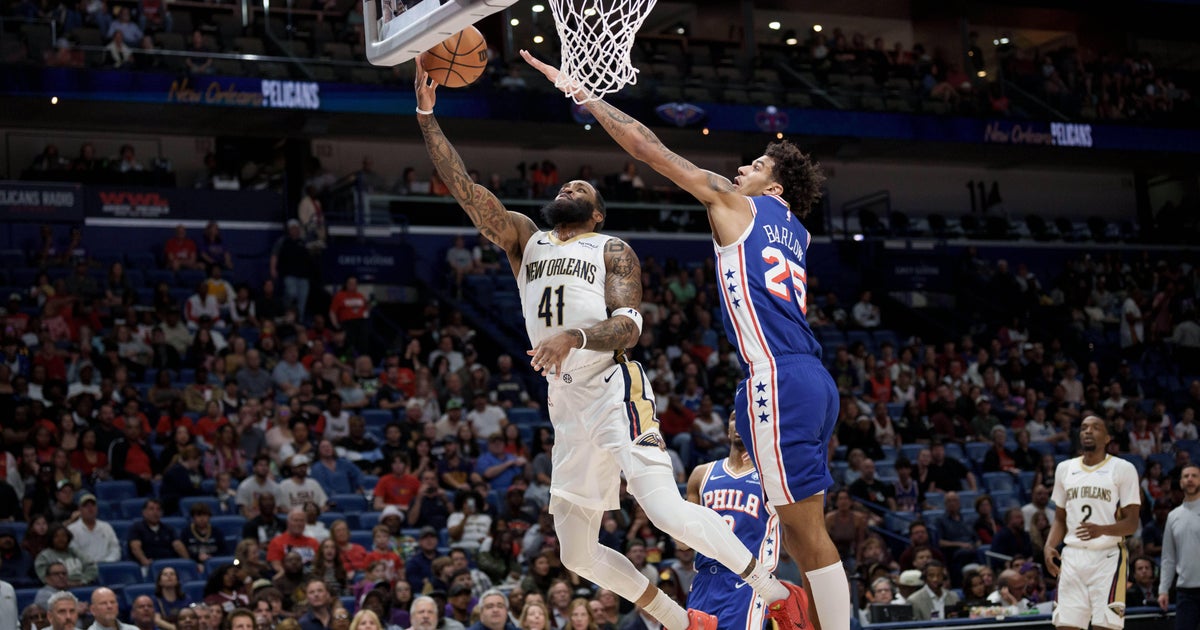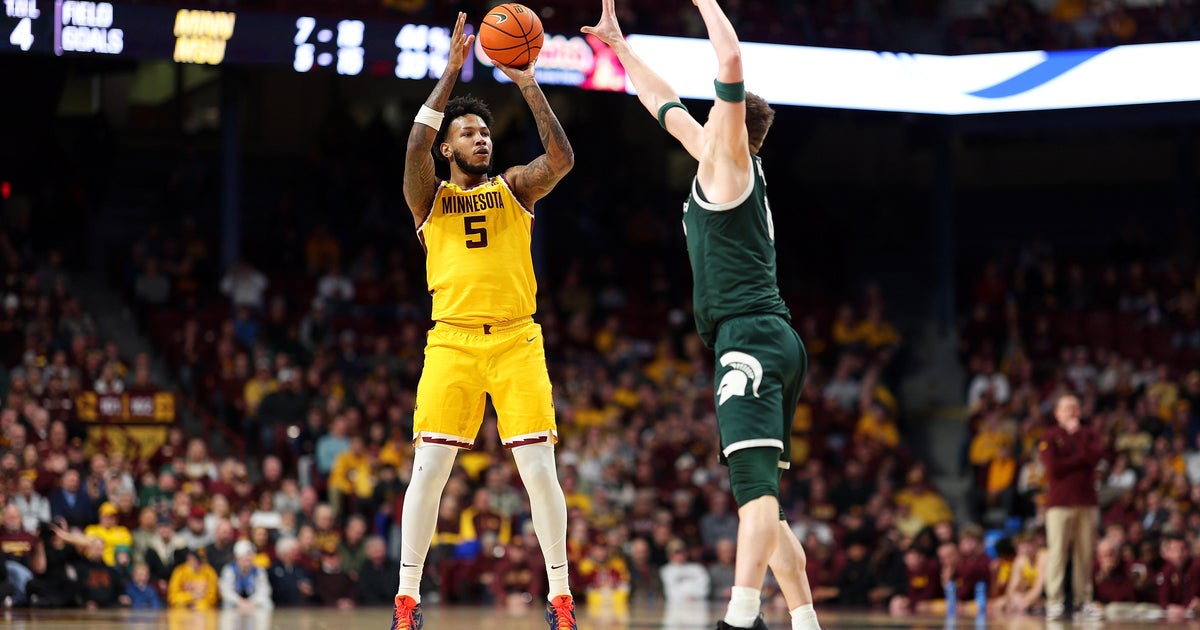Are Expectations Unreasonably High For Patriots Entering 2018?
By Michael Hurley, CBS Boston
BOSTON (CBS) -- The common counter-argument to anyone raising a stink about Tom Brady's -- and to a lesser extent, Rob Gronkowski's -- absence from offseason workouts and practices has gone something like this: "Well, the Patriots will still be Super Bowl contenders, they're still going to definitely win their division, and we're all but guaranteed to see them in the AFC Championship Game for the eighth straight year."
Even people who argue that Brady's absence is a very big deal generally concede that point. This won't prevent the Patriots from playing in the AFC title game next January.
That may be true. The past two decades have shown us that the duo of Brady and Bill Belichick has generally been enough to keep the Patriots in the mix to win titles every year. Even though Brady is going to turn 41 in August (and Belichick just celebrated his 66th birthday), it's not at all out of bounds to suggest such expectations should remain in place for next season.
However -- however! -- at the risk of being the party pooperest of party poopers, we all seem to be overlooking one significant factor impacting the Patriots this offseason: They just lost the Super Bowl.
You may be saying, "Significant? Please." I hear you. But before one properly assesses the outlook for the 2018 New England Patriots, one must take a peek at history and try to learn just how difficult and challenging it can be for any team to put forth an excellent season after losing the Super Bowl. The data almost overwhelmingly shows that the Patriots will be facing a major challenge.
Here are some numbers, since the NFL expanded to a 12-team postseason in 1990.
--Since 1990, there have been 27 teams to play a season after losing the Super Bowl.
--Of those 27 teams, zero have won the Super Bowl in the following season.
--Of those 27 teams, just three have made it back to the Super Bowl after losing the Super Bowl. All three of those teams were the Buffalo Bills, and it has not happened since the 1992 season.
--Of the 24 Super Bowl-losing teams since 1993, none have made it back to the Super Bowl.
--Of the 24 Super Bowl-losing teams since 1993, just two have reached the conference championship game the following season.
--Of the 24 Super Bowl-losing teams since 1993, eight teams only reached the divisional round the following season.
--Of the 24 Super Bowl-losing teams since 1993, four teams only reached the divisional round the following season.
--And in what is the most telling piece of information, of the 24 Super Bowl-losing teams since 1993, 10 teams have missed the playoffs entirely.
Those 10 teams represent 41.7 percent of Super Bowl losers since 1993. Think about that: A team was good enough to win its conference one year, but for various reasons just one season later, that same team couldn't even earn a wild-card spot.
The average record of those 10 teams that missed the playoffs was 7-9. Only one of them -- the Matt Cassel-led 2008 Patriots -- had a winning record. Nine Super Bowl-losing teams went from great to terrible in the span of a few months.
Now, realistically, it would not be wise to place the Patriots in that particular category of Super Bowl losers. They are, after all, the Patriots. And as you might have already figured out, they have been one of the two teams that reached the conference championship a year after losing the Super Bowl. They did that in 2012, a year after losing Super Bowl XLVI to the Giants, when they actually hosted the AFC title game but lost to Baltimore.
If the Patriots managed to be a top-four team in 2011, then they should be able to do it again in 2018. Right?
Well, sure. Maybe they should. But to pretend like such a fate is a given is to overlook too many very good teams over the years who have struggled to rebound after losing the Super Bowl.
Most recently, just look at the Carolina Panthers, who flirted with 16-0 before settling for a 15-1 regular-season record in 2015. NFL MVP Cam Newton and Co. buzzed through the defending NFC champion Seahawks in the divisional round before decimating the Cardinals in the conference title game, which they won 49-15. The Panthers were unstoppable ... until the Super Bowl, which they lost 24-10 to Denver.
The following season, the Panthers went from 15-1 to 6-10, good enough for last place in the NFC South.
Speaking of the Broncos, they were an absolute force in their four years with Peyton Manning at quarterback. They made the Super Bowl twice, and won it once, but in the year after they lost the Super Bowl they lost their only postseason game. At home. By 11 points. To the Colts. (Who would lose the following week to the Patriots by 38 points.)
The losers of the Super Bowl for the 2011 and 2012 seasons -- the Patriots and the 49ers, respectively -- had the most post-1992 success. They both reached the conference title game the following season but lost -- the Patriots to the Ravens, the 49ers to the Seahawks. Prior to those two teams, though, Super Bowl losers were on a cold streak that lasted more than a decade.
Starting with the 1999 Atlanta Falcons and ending with the 2011 Pittsburgh Steelers, over a 13-year stretch, Super Bowl losers owned a combined playoff record of 2-5 in the seasons following their Super Bowl appearances. Of those 13 teams, eight missed the playoffs entirely. Just two teams -- the 2006 Seahawks and the 2009 Cardinals -- won a single playoff game. Meanwhile the 2000 Titans, the 2010 Colts, and the 2011 Steelers each went one-and-done in their lone playoff games following their Super Bowl losses.
Leaving out playoff results, the regular-season results for many of those Super Bowl losers were quite bad. From 1999 through 2007, the average regular-season record of the Super Bowl loser was 7-9. That's a number that's a bit skewed by the 13-3 Titans in 2000.
If that's too much verbiage, here's a simple graphic showing how rare real success has been for Super Bowl losers since 1990:
Now, you may be saying this: Hey, beefcake, that data is great and all, but most of those teams didn't have Brady and Belichick. Also, Michael, the AFC East stinks right now. It stinks out loud.
That's all fine and true. The Patriots certainly should have a better chance of competing in 2018 than a number of those teams had through the years. Still, an assumption that a conference championship berth is just going to take place? That's probably unwise.
While the Patriots may not be doomed at the moment, remember that moments after winning Super Bowl LI vs. Atlanta, Belichick lamented the fact that his team was "five weeks behind" every other team in terms of offseason work. That was true again this year, only without the glow of winning a Lombardi Trophy. The starting quarterback is doing his own thing while his teammates work together as a team for the first time. The quarterback will also be 41 years old, and while his health and fitness was unprecedented at age 40, there's likewise no history of any QB succeeding at 41. He'll have to beat some odds there. (He probably will succeed.)
There's got to be -- got to be -- some players on the roster still perplexed as to why Malcolm Butler did not play a single defensive snap in the Super Bowl, and how those feelings impact those players in 2018 is anyone's guess. The Patriots look to be fine on paper at replacing Nate Solder at left tackle, but what works "on paper" and what works "on the field" do not always align. Danny Amendola won't be around to randomly make the most important catches of the year in the postseason. Julian Edelman is 32 years old and coming off a major knee injury. There are question marks, no doubt.
And there's the Patriots' own history in this whole mix. They lost the Super Bowl after the 2011 season, during which they went 13-3. In 2012, they went 12-4 and hosted the Ravens in the AFC title game for the second straight year. This time, John Harbaugh and Billy Cundiff didn't combine to choke the game away, and the Patriots were actually shut out in the second half on their home turf, losing 28-13.
That year, the Patriots were good enough to reach the conference championship. But they were barely competitive once they reached that game, arguably the weakest of the four conference championship participants that season.
The point is, even for a team with Brady and Belichick, the work to truly contend for a championship a year after losing the Super Bowl can be extremely difficult. The Patriots are often the exception to many rules. Perhaps they may buck the trend and win the whole thing. But talk around New England that a trip to the AFC Championship Game is all but guaranteed for the Patriots? That should maybe cool down at least a little bit as the Patriots work toward building their team in 2018.
You can email Michael Hurley or find him on Twitter @michaelFhurley.
